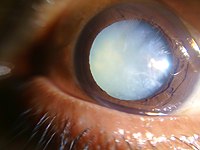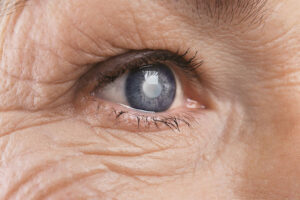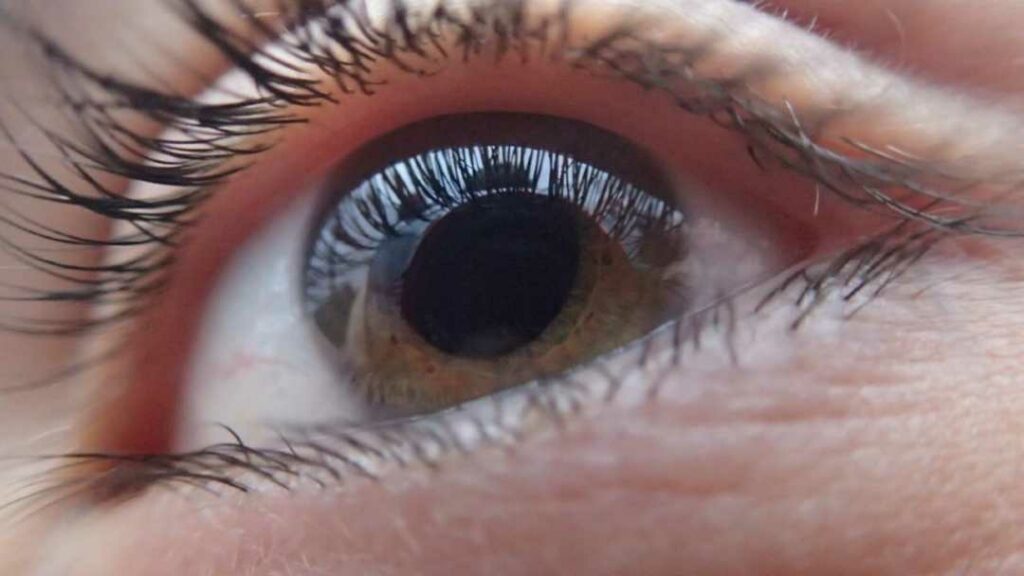An intumescent cataract is a type of cataract that is caused by the lens of the eye swelling. This can lead to blurry vision and other symptoms. If you are experiencing any of these symptoms, it is important to see a doctor right away. In this blog post, we will discuss what intumescent cataracts are, as well as some of the things you should know about them. We will also provide some tips on how to reduce your risk of developing one.
Contents
What Is An Intumescent Cataract?
 An intumescent cataract is a type of eye disorder characterized by the clouding or opacity of the lens in one or both eyes. It is a type of cataract that develops after a matured cataract. The condition results in blurry vision and often requires surgery to remove the cloudy lens. This is believed that the cause of an intumescent cataract is a build-up of insoluble proteins in the lens, which can lead to hardening and clouding.
An intumescent cataract is a type of eye disorder characterized by the clouding or opacity of the lens in one or both eyes. It is a type of cataract that develops after a matured cataract. The condition results in blurry vision and often requires surgery to remove the cloudy lens. This is believed that the cause of an intumescent cataract is a build-up of insoluble proteins in the lens, which can lead to hardening and clouding.
It is estimated that intumescent cataracts account for 10-15% of all cataract cases. The condition is typically seen in people over the age of 60 and can affect both eyes with varying severity. While intumescent cataracts are not life-threatening, they can significantly reduce a person’s quality of life by affecting their vision and ability to perform everyday tasks.
How Do I Know If I Have Intumescent Cataracts?
It is possible to have intumescent cataracts without any obvious signs or symptoms. In some cases, the cloudiness in the lens is so slight that your vision won’t be significantly affected until the condition progresses.
A few of the common symptoms include:
- Blurred and dimmed vision
This is one of the most common symptoms of an intumescent cataract. Your vision may be affected due to the cloudiness in your lens, which makes it difficult for light to pass through and reach your retina.
- Light sensitivity
This cataract often cause increased sensitivity to bright lights. This can make activities such as driving at night difficult and uncomfortable.
- Halos and glare
You may experience a halo or glare around lights, which can be especially bothersome when driving at night. This is caused by the cloudiness of your lens, which scatters light and makes it difficult to focus.
- Double vision
Intumescent cataracts can cause double vision if the lens becomes so cloudy that it affects your ability to focus. This is not a common symptom but can be an indication of advanced cataracts.
- Irritation or discomfort
Finally, some people may experience irritation or discomfort in their eyes. This is usually due to the accumulation of fluid around the lens, which can cause pressure and swelling.
These signs and symptoms are usually mild and can worsen over time. If you experience any of these symptoms, it is important to visit your doctor for a comprehensive eye exam. Your doctor will be able to diagnose intumescent cataracts and recommend the best treatment options available.
What Are The Causes And Risks Factors?
 Intumescent cataracts are caused by a buildup of proteins in the lens. This condition can occur due to age-related changes, injury, or certain medications and illnesses. Common risk factors for intumescent cataracts include:
Intumescent cataracts are caused by a buildup of proteins in the lens. This condition can occur due to age-related changes, injury, or certain medications and illnesses. Common risk factors for intumescent cataracts include:
- Age – People over the age of 60 are more likely to develop this type of cataract.
- Diabetes – Diabetes increases the risk of developing intumescent cataracts.
- Smoking – People who smoke are more likely to develop cataracts, including those that are intumescent.
- Obesity – Being obese may increase the chance of developing a cataract, especially if other risk factors such as diabetes are present.
- Exposure to ultraviolet light – Prolonged exposure to sunlight can cause damage to the lens of the eye, leading to a cataract.
- Medications – Certain medications such as steroids can increase the risk of developing intumescent cataracts.
- Previous eye surgery or injury – These may increase the risk of a cataract, including intumescent cataracts.
- Family history – There is some evidence that suggests certain forms of cataracts may be inherited.
All in all, these are the common causes and risk factors associated with intumescent cataracts. It is important to speak to your doctor if you believe you or someone in your family may be at a higher risk for this eye condition. Additionally, it is important to have regular eye exams, as early detection and treatment can help minimize the impact of this cataract.
How Is It Diagnosed?
The diagnosis of an intumescent cataract is usually made based on a complete eye exam. The doctor will check for signs of swelling and clouding in the lens, as well as any vision impairment that may be related to the condition.
During this examination, the doctor may also look for other associated diseases or conditions that could contribute to the development of an intumescent cataract, such as diabetes or glaucoma. If any of these conditions are present, the doctor may request further testing to determine if the cataract is related to the underlying condition.
How Are Intumescent Cataracts Treated?
There are several treatments for intumescent cataracts. The treatment may depend on the severity of the condition and individual circumstances. Common treatments include:
- Eyedrops – These are used to reduce inflammation and prevent the growth of bacteria that can lead to further damage or discomfort.
- Surgery – This is typically done if the cataract is causing vision difficulties or severe discomfort. The surgery involves removing the affected lens and replacing it with an artificial one that provides clear vision.
- Laser Therapy – This procedure utilizes a laser to reduce the swelling of the eye’s natural lens by shrinking collagen fibers in the eye.
Each treatment option has its own risks and benefits. So it is important to discuss the options with your doctor before making a decision. The treatment may also be combined with other treatments, such as medication or lifestyle changes. In any case, it is important to monitor your vision and the symptoms of intumescent cataracts closely in order to ensure that they do not worsen.
With the right treatment, intumescent cataracts can be successfully managed and your vision can remain clear. If you are experiencing any of the symptoms associated with this condition, it is important to speak to a doctor or ophthalmologist right away.
How To Reduce Your Risk Of Developing This Cataract?
 There are several ways that you can reduce your risk of developing an intumescent cataract, though certain risk factors such as age or family history may be unavoidable. The best way to avoid this condition is to practice good eye health:
There are several ways that you can reduce your risk of developing an intumescent cataract, though certain risk factors such as age or family history may be unavoidable. The best way to avoid this condition is to practice good eye health:
- Wear sunglasses and a hat whenever possible when outdoors, in order to protect your eyes from the sun’s UV rays.
- Eat a healthy diet rich in antioxidants and nutrients that can help protect your eyesight, such as dark leafy greens, fish, nuts, and seeds.
- Avoid smoking and drinking alcohol to keep your eyes healthy.
- Have regular eye exams so that any changes in your vision can be detected and addressed.
- If you wear contact lenses, be sure to follow the instructions carefully, and replace them regularly.
- Take steps to manage any chronic health conditions that could affect your eyesight.
- Use eye drops regularly to keep your eyes lubricated and reduce the risk of dryness or irritation.
- Reduce stress levels and get enough sleep to promote overall health.
By following these simple precautions, you can help protect your eyesight and avoid developing an intumescent cataract. As this condition is typically age-related, it’s important to take steps to keep your eyes healthy. And make sure that any changes in vision are addressed promptly.
Conclusion
In a nutshell, an intumescent cataract might be the cause of a variety of visual disturbances, including blurred or double vision. It is important to get it checked out by an ophthalmologist right away if any of these symptoms show up suddenly. Early detection and treatment can help restore your vision and prevent any permanent damage.
Just be sure to do your own research and ask questions, so you can make the best decision for your eye health. With proper care and attention, you can get your vision back to normal and enjoy life!
Cataract surgery is a safe and painless procedure. At MantraCare we have a team of experienced eye surgeons, who will be happy to answer any questions on cataract surgery. Call us at +91-9711116605 for any inquiries.
